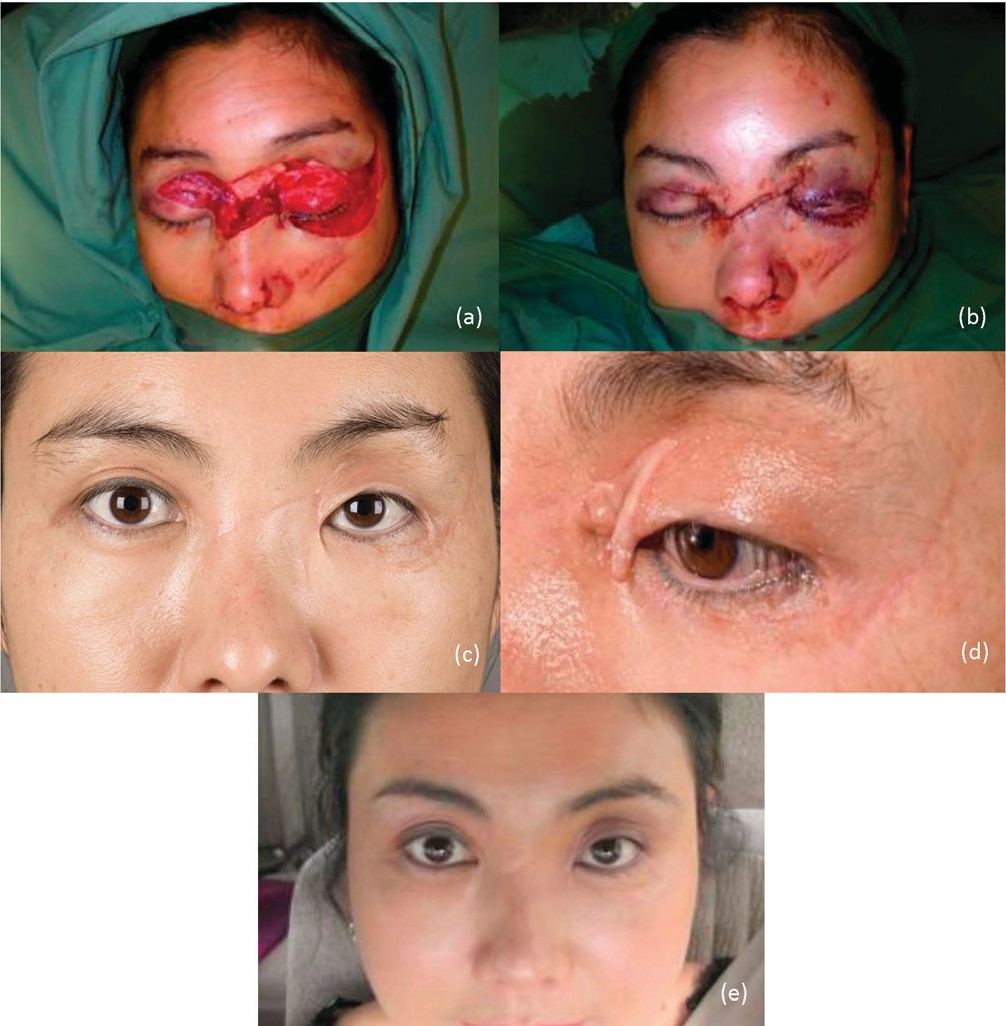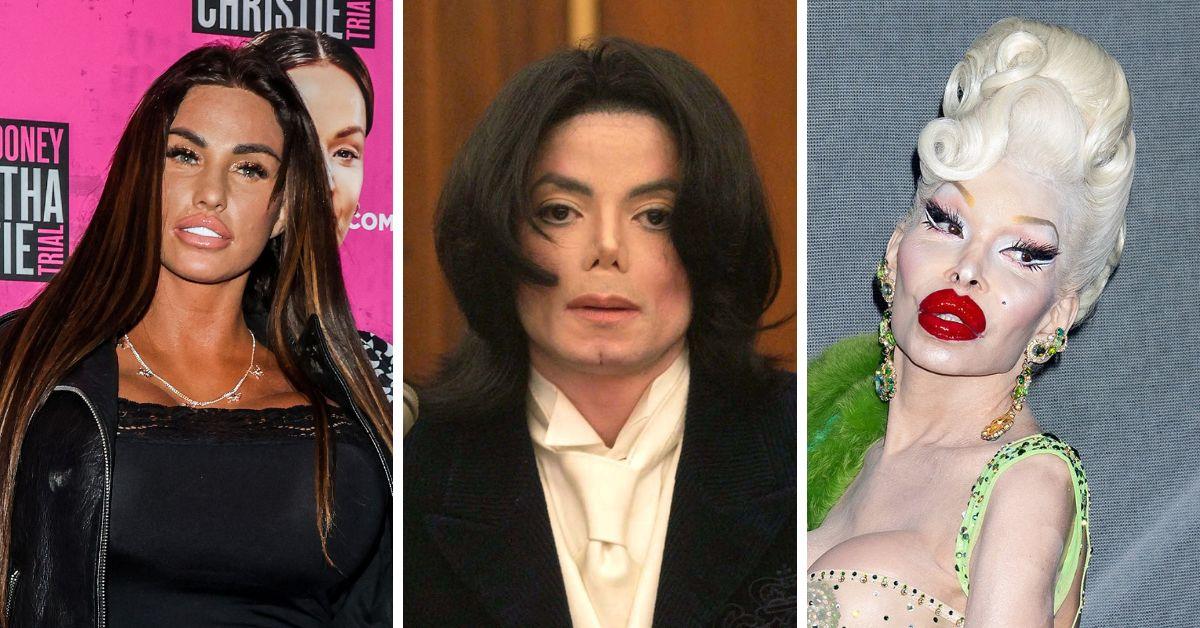Investigating the Emotional and Social Elements That Drive Individuals to Consider Plastic Surgery as a Means of Improvement
The decision to go after plastic surgery frequently extends beyond simple aesthetic appeals, intertwining with psychological and social dynamics that merit thorough evaluation. Factors such as self-confidence, prevalent social appeal criteria, and the prevalent influence of social media assemble to shape individual motivations for surgical enhancement. As these impacts become progressively famous, recognizing the underlying social and psychological contexts is important. What stays to be checked out is the profound influence these variables have not just on individual identification yet also on more comprehensive social norms and values surrounding beauty and acceptance.
The Role of Self-worth
Self-confidence significantly affects an individual's choice to pursue cosmetic surgery. People with low self-esteem commonly regard themselves in an adverse light, leading to sensations of insufficiency regarding their physical appearance. This adverse self-perception can drive them to look for medical interventions as an approach of boosting their self-image. The wish for renovation in one's appearance is frequently connected to a belief that such adjustments will certainly raise their overall self-respect and confidence.

Ultimately, the function of self-confidence in the decision-making procedure regarding plastic surgery highlights the intricate interplay between body picture, individual satisfaction, and mental wellness. Understanding this relationship is critical for health care professionals to ensure that clients are making informed decisions rooted in reasonable expectations and emotional well-being.
Societal Elegance Specifications
Influenced by prevalent media representations and social narratives, societal charm requirements play a crucial role in shaping people' understandings of their own bodies. These standards are commonly identified by an idealized type of beauty that stresses qualities such as youthful vigor, slimness, and proportion. As these ideals are perpetuated via numerous networks, consisting of film, television, and advertising and marketing, individuals regularly internalize these messages, bring about frustration with their natural look.
The ramifications of these societal standards expand beyond aesthetic preferences; they can impact self-esteem, psychological health and wellness, and social partnerships. Individuals that perceive themselves as falling short of these requirements may experience sensations of inadequacy, motivating a need for plastic surgery as a way of attaining societal approval. This search is commonly fueled by the idea that adjusting to these ideals will certainly enhance not only physical look but likewise social standing and individual fulfillment.

Influence of Social Network
The effect of societal beauty standards is additional enhanced by the rise of social media platforms, where curated images and idealized representations of beauty are common. Users are constantly subjected to filteringed system and edited photographs, which usually portray unattainable physical qualities. This direct exposure grows a culture of contrast, leading people to analyze their very own appearance against these commonly unrealistic standards.
Social media influencers and stars often promote aesthetic treatments, stabilizing the idea that surgical improvements are a sensible means for accomplishing societal suitables (plastic surgery rancho cucamonga). The presence of these improvements can create an understanding that undertaking cosmetic surgery is a conventional technique, therefore influencing individuals to take into consideration comparable treatments as a path to boosted self-confidence and social acceptance
Additionally, the interactive nature of social networks permits for prompt feedback through likes and comments, better reinforcing the desire to conform to preferred elegance criteria. Such communications can worsen sensations of insufficiency and drive individuals toward cosmetic surgical treatment as a way of getting validation. Ultimately, social media plays a pivotal role fit assumptions of appeal, which dramatically affects the decision-making processes bordering cosmetic surgery.
:max_bytes(150000):strip_icc()/GettyImages-155388326-5b5dfd5f46e0fb00824b134a.jpg)
Social Point Of Views on Look
Across various societies, assumptions of look are deeply rooted in historic, social, and financial contexts, forming individuals' views i loved this on appeal and charm. In lots of societies, appearance functions as a considerable marker of identification, affecting social standing, specialist possibilities, and individual relationships. For example, in some cultures, light skin is frequently associated with riches and opportunity, while others might idealize darker complexion as icons of toughness and authenticity.
Additionally, you could look here traditional charm standards are often bolstered with cultural stories, media representations, and family influences, resulting in differing suitables across various regions (plastic surgery rancho cucamonga). In Western societies, the emphasis on young people and physical conditioning often drives people toward aesthetic improvement, while in specific Eastern societies, even more subtle changes straightened with standard aesthetic appeals may be chosen
Globalization and the proliferation of digital media have actually even more made complex these dynamics, developing a hybridization of beauty suitables that transcends geographical limits. As people significantly browse these cultural narratives, the stress to adapt specific look requirements can lead to the need for cosmetic surgical procedure, reflecting an intricate interaction of cultural values and individual goals. Understanding these social viewpoints is vital in addressing the motivations behind plastic surgery considerations.
Psychological Impacts of Cosmetic Surgical Procedure
Numerous individuals looking for cosmetic surgical treatment report experiencing profound emotional effects that can substantially change their self-perception and psychological wellness - plastic surgery rancho cucamonga. The need for physical enhancement frequently comes from underlying problems such as low self-confidence, body dysmorphic problem, or social stress relating to beauty criteria. For some, the prompt post-operative stage can result in a temporary increase in self-esteem and fulfillment with their appearance, promoting a sense of empowerment
Nevertheless, these positive feelings might not be withstanding. Research suggests that while some people experience boosted self-worth, others may face increased anxiety or clinical depression if their expectations are not fulfilled. This disparity can arise from impractical suitables perpetuated by media representation and social narratives surrounding appeal.
In addition, the emotional ramifications of cosmetic surgery extend past the individual. Relationships with friends and family may be stressed as social dynamics change, resulting in feelings of isolation or alienation. Eventually, the emotional impacts of cosmetic surgical treatment are complex and intricate, requiring careful consideration by both prospective people and healthcare suppliers to make certain educated decision-making and practical expectations.
Conclusion
Finally, the choice to pursue cosmetic surgical treatment is substantially affected by a combination of self-confidence issues, social beauty requirements, and social perspectives on look. The pervasive reach of social networks better intensifies these pressures, promoting impractical perfects that people usually strive to obtain. Recognizing these social and psychological variables is necessary for resolving the inspirations behind cosmetic surgery, highlighting the requirement for an extra nuanced conversation surrounding elegance and self-acceptance in contemporary society.
The decision to pursue cosmetic surgical treatment often extends past plain appearances, linking with social and psychological characteristics that merit thorough examination. Eventually, social media plays a pivotal function in shaping perceptions of elegance, which considerably affects the decision-making processes surrounding cosmetic surgical treatment.
As individuals increasingly navigate these cultural narratives, the stress to adjust to certain appearance standards can lead to the desire for cosmetic surgery, click here to read mirroring a complex interaction of social values and personal ambitions.In final thought, the decision to pursue cosmetic surgery is significantly influenced by a combination of self-worth problems, societal elegance criteria, and cultural perspectives on look. Comprehending these social and psychological variables is necessary for attending to the motivations behind cosmetic surgery, highlighting the demand for a much more nuanced discussion bordering charm and self-acceptance in contemporary culture.